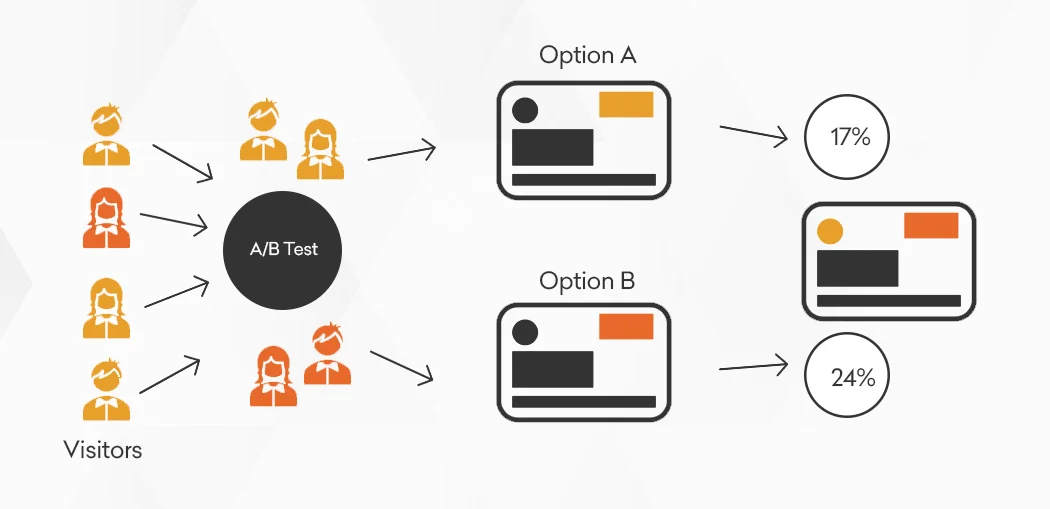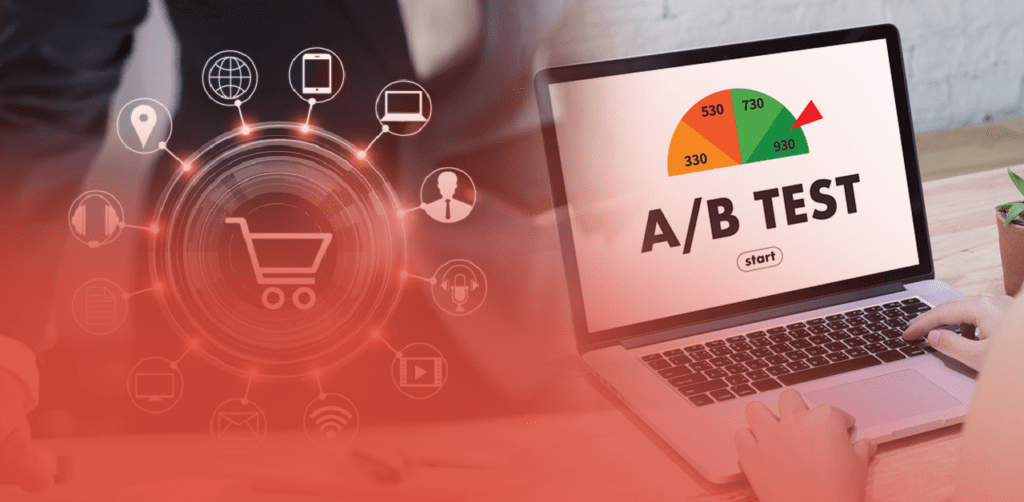The nature of the e-commerce industry has always been dynamic. If you are running an ecommerce business, a part of your job involves solving challenges like increasing the site’s conversion rate, meaning the rate at which customers are becoming buyers. Decreasing the rate at which your customers are abandoning carts. And finally, increasing the return on your ad spend. There is only one answer to all these questions, which is to enhance customer experience. And to achieve this, an e-commerce site has to deliver what its buyers are looking for.
One of the most used techniques in the technology world is understanding the preferences of your customers through A/B testing. As you read further you’ll explore what A/B testing is, its challenges, and the integral role of machine learning in A/B testing for eCommerce websites.
A/B Testing for Your Ecommerce Site
Let’s first dive into the basics, A/B testing is a common and powerful testing technique. Before launching a new product page on a website, you, as an e-commerce owner, could send “test” versions to a portion of your customers to see which version of the webpage performs better. Moreover, the A/B test gives you the answers to what delights your customers.
Additionally, A/B testing can be used in social media ads as well, after analyzing which social media post had the most clicks, you can then use that version in a template for the duration of the campaign. That way, you have a sure shot at increasing engagement.

Picture Content Credits: towards data science
Is Machine Learning Simplifying A/B Testing?
To understand machine learning let’s consider an example, have you ever browsed through an e-commerce site and then checked your social media feed? There is a high chance, you’ll see the same product ad with a fancy marketing message. But how did the social media platform know you were at which platform earlier and what products did you like? That’s machine learning in action. There is less human interference and more freedom for the machine. The algorithm could act on its own by developing the required knowledge to carry out a given task. The machine learning algorithms help devices learn from a given set of data and use the insights for future applications.
Now, getting to the point on how machine learning is overcoming the challenges of A/B testing. You may discover some challenges while implementing A/B tests. For instance, you might have to make the final choice before the conclusive results from A/B testing, especially if you’re on a tight deadline. Another hurdle could be more customers might like option A but there could be a similar portion of customers that chooses B. This might frustrate you on how to please every customer. Fortunately, machine learning comes as a savior in these stressful times.
You can also read The Importance of a Better eCommerce Search Engine
- Automatic Customer Segmentation
Before you decide to A/B test your webpage, you need to segment your customers into relevant groups. With the help of unsupervised machine learning, you can group the customers depending on their characteristics (age, gender, expenses, preferences, etc.) and personalize the content on the basis of user preferences. For instance, for women over 20, the ads will showcase feminine products while for men over 20 years old the platform can display masculine products.
- Automating the Decision After A/B Tests
A machine learning algorithm is programmed to select web page features that are clicked more often. The decision is based on the best-suggested changes to the webpage that an algorithm may offer. For instance, there could be reliable data that tells the bigger “BUY” button on the page increased sales by 1% so the next logical step is to check whether its further enlargement may improve the results.
- Showcasing an Optimal Product Alternative
The self-learning algorithms are faster in finding optimal options of products or pages instead of manual slower processes. Machine learning in e-commerce allows a physical goods seller to shorten orders of magnitude from months to days.
In conclusion, machine learning is an evolving technology. Still, it has many real-time applications, especially in the e-commerce sector. For instance, detecting dynamic pricing, selection of personalized content, and much more. By using machine learning, you can get a better picture of what your audiences prefer in many key steps of the A/B testing process. Moreover, machine learning sorts and analyzes channels, such as social media channels to help the customer discover valuable buyers and ensure the test is going to the right customers.










